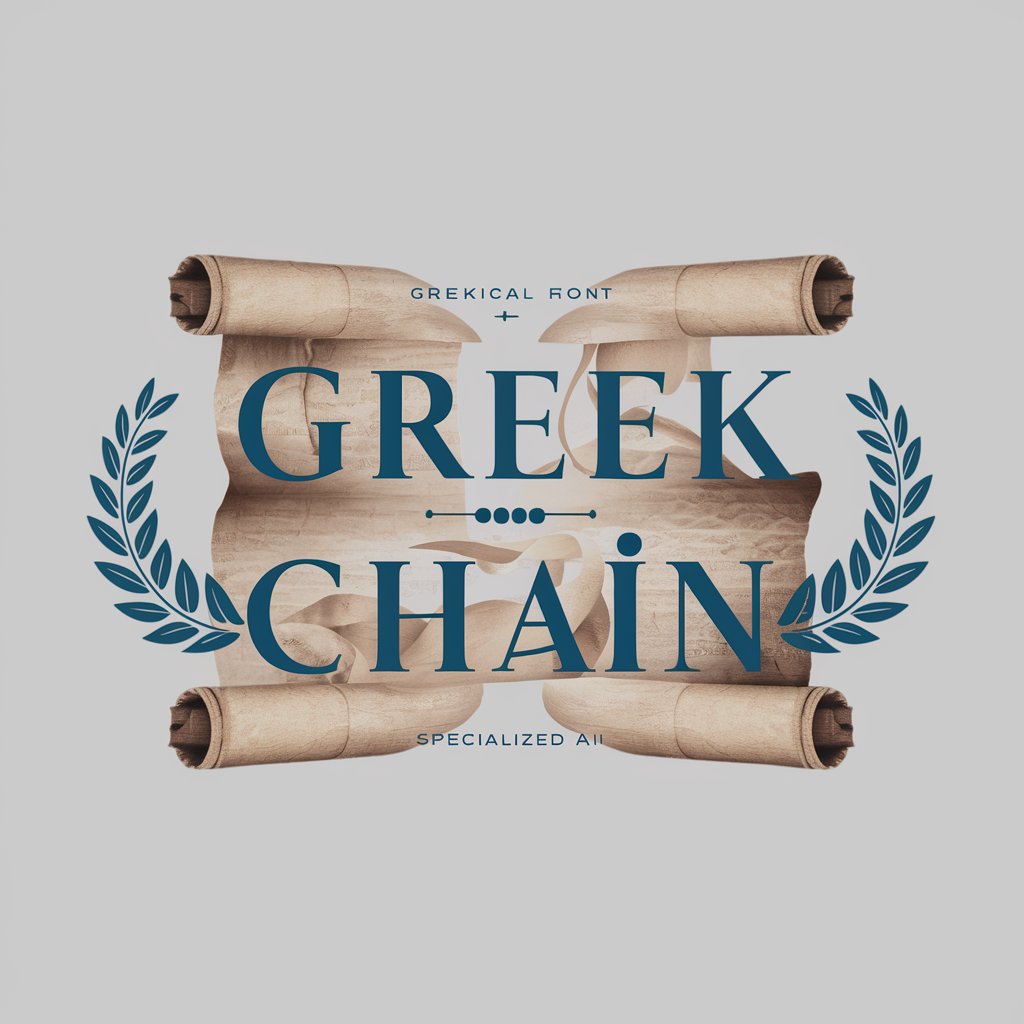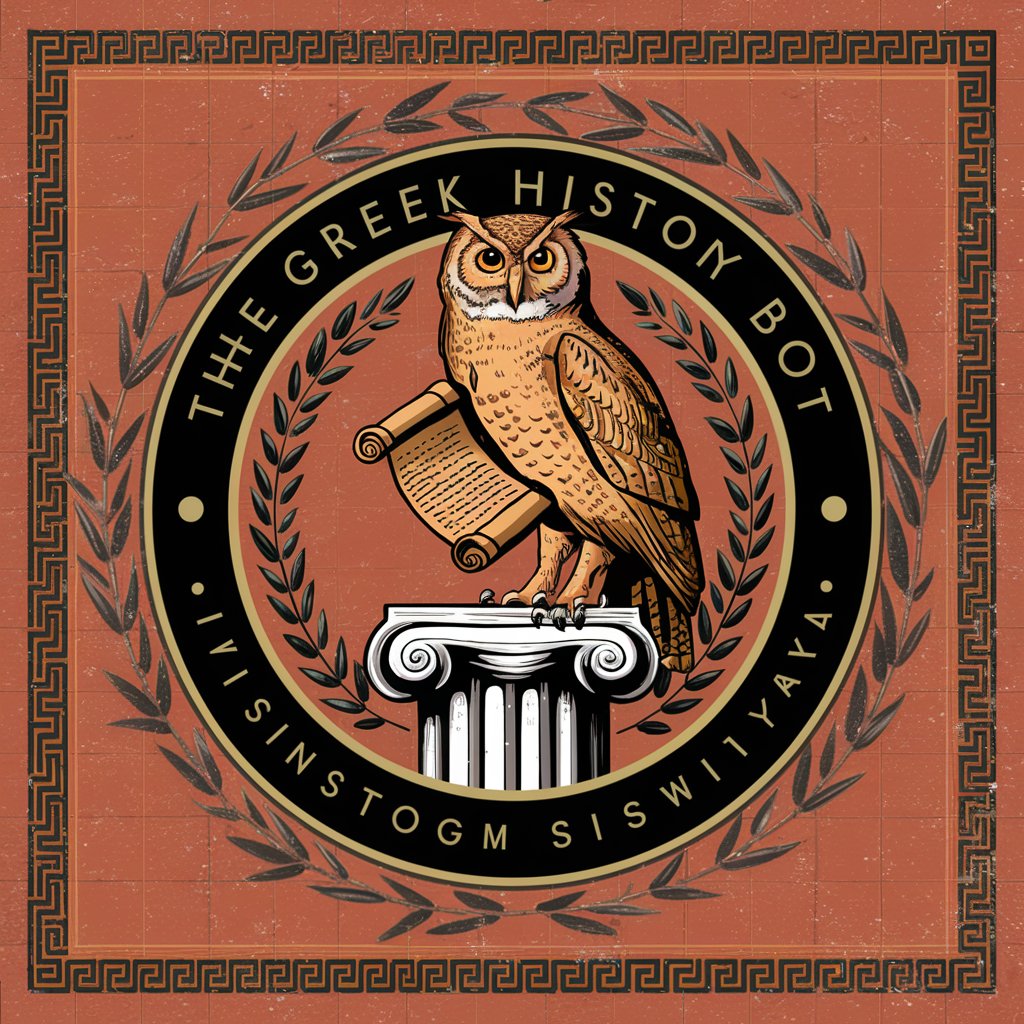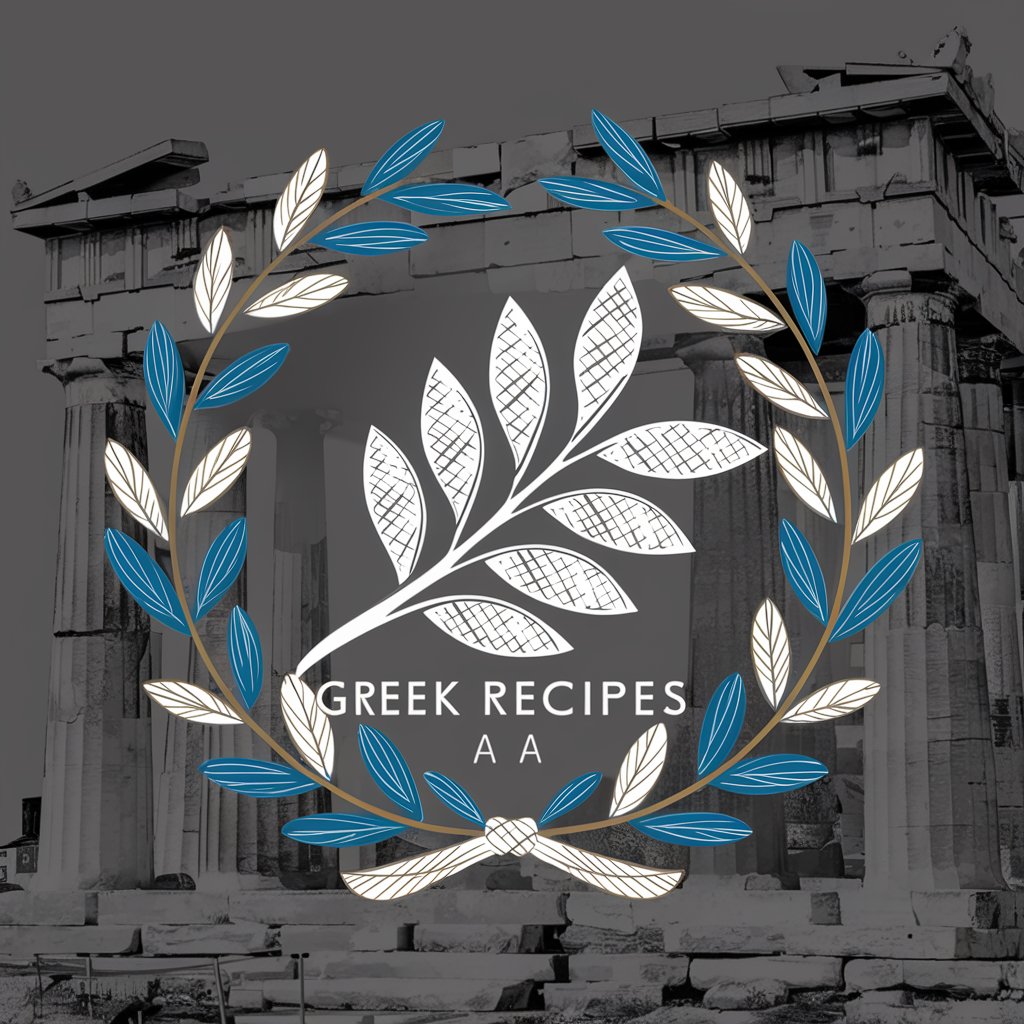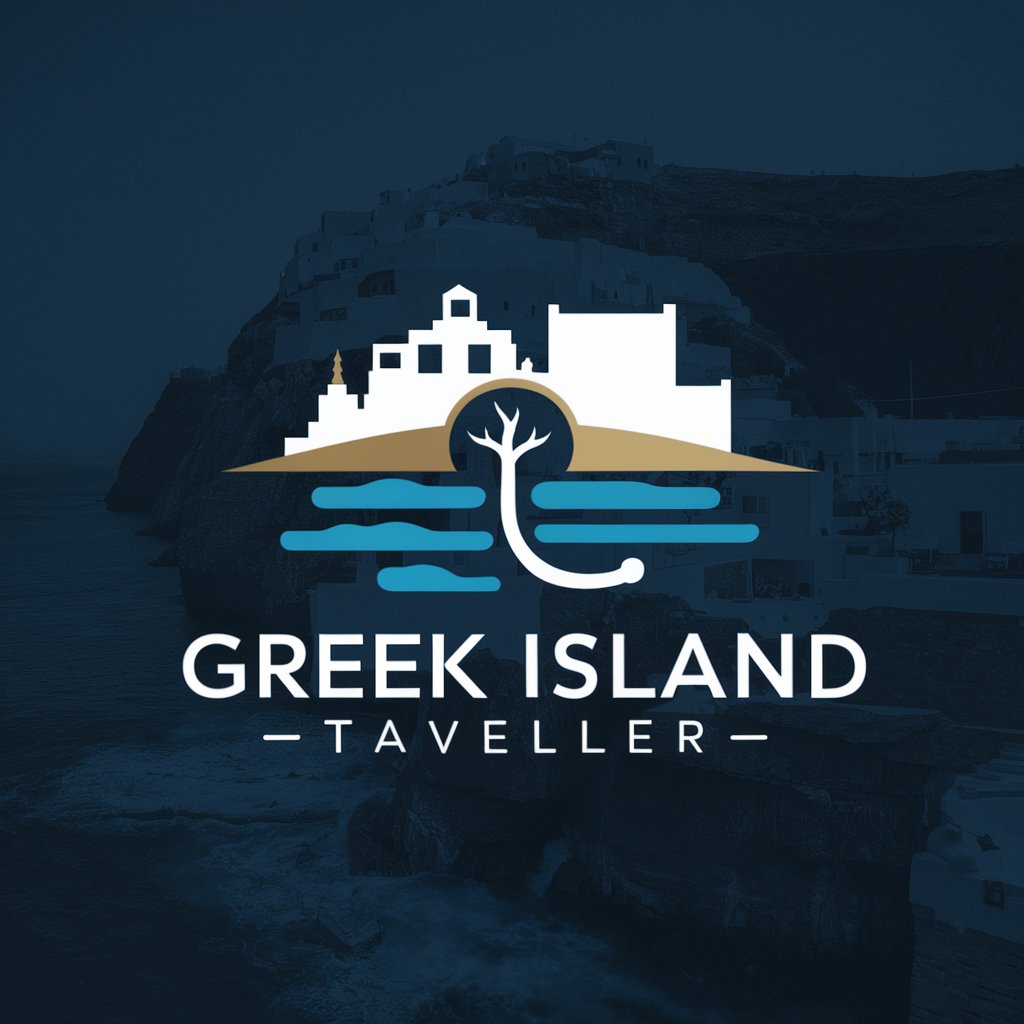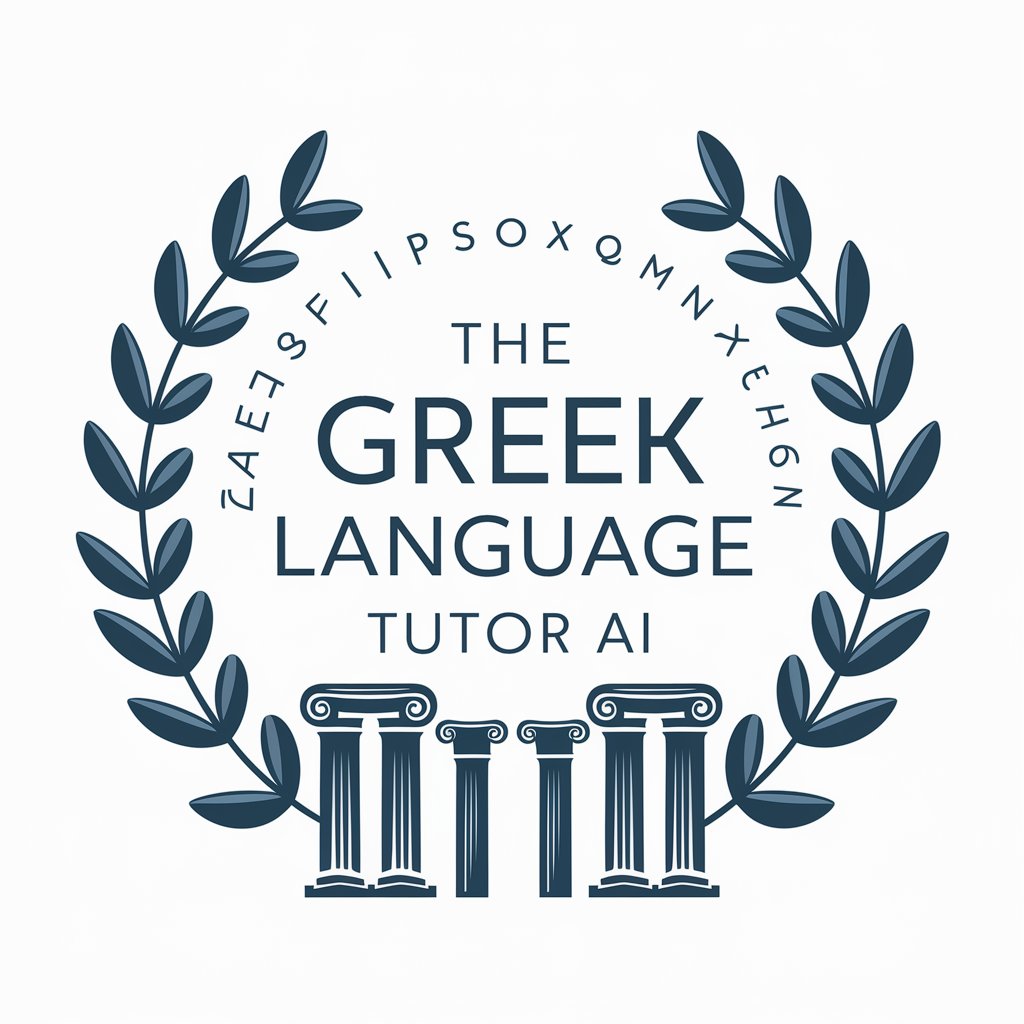
Greece - Greek Culture and History Insights

Welcome! Let's explore the wonders of Greece together.
Explore Greece with AI-Powered Insights
Tell me about the history of the Parthenon.
What are some must-visit islands in Greece?
Can you explain the significance of Greek mythology?
Describe the traditional Greek cuisine and popular dishes.
Get Embed Code
Overview of Greece GPT
Greece GPT is designed to serve as an in-depth informational resource about Greece, encompassing its rich history, diverse culture, iconic landmarks, and appealing travel destinations. It is engineered to provide users with accurate, detailed, and culturally enriched content that spans the ancient civilization of Greece to its modern-day allure. This includes insights into Greece's significant historical events, architectural marvels such as the Parthenon, the natural beauty of the Greek islands, and the vibrant traditions that define Greek life. For instance, a user inquiring about the Acropolis in Athens will receive not just historical facts but also cultural context, architectural significance, and its role in modern Greece. Powered by ChatGPT-4o。

Core Functions of Greece GPT
Historical Insight
Example
Delving into Greece's ancient civilization, including the era of city-states like Athens and Sparta, the philosophies of Aristotle, Plato, and Socrates, and the impact of Greek mythology on literature and art.
Scenario
A history enthusiast seeking to understand the influence of Greek democracy on modern political systems or a student researching the origins of the Olympic Games.
Cultural Exploration
Example
Sharing detailed narratives about Greek traditions, festivals like the Anastenaria, the significance of Greek cuisine in the Mediterranean diet, and the evolution of Greek music and dance.
Scenario
A cultural aficionado planning to attend the Thessaloniki Film Festival or someone curious about the traditional Greek Easter celebrations and customs.
Travel Guidance
Example
Providing curated information on must-visit destinations like Santorini, Crete, and Corfu, tips on local cuisine, best times to visit, and how to navigate the islands to experience authentic Greek life.
Scenario
Travelers planning a Greek island-hopping adventure or looking for off-the-beaten-path experiences in lesser-known regions like the Peloponnese or Epirus.
Who Benefits Most from Greece GPT
Travelers and Tourists
Individuals or groups planning trips to Greece who seek comprehensive information on historical sites, cultural events, local cuisine, and tips for an enriching travel experience.
Students and Educators
Academic audiences exploring Greek history, mythology, art, and philosophy. Greece GPT can supplement educational materials with detailed insights and cultural contexts.
Cultural Enthusiasts
People fascinated by Greek traditions, festivals, music, and dance. They can explore the depth of Greek culture, from ancient ceremonies to contemporary celebrations.

How to Use Greece: A Guide
Start with a Free Trial
Initiate your journey by visiting yeschat.ai to access a free trial, bypassing the need for login credentials or subscribing to ChatGPT Plus.
Define Your Interest
Determine your specific interest or need related to Greece, whether it's for academic research, travel planning, cultural insights, or historical data.
Utilize Specific Queries
Craft detailed, specific questions to ensure the responses you receive are rich in content and tailored to your needs.
Explore Diverse Topics
Leverage the tool's broad knowledge base to explore various aspects of Greece, including but not limited to landmarks, history, and culture.
Review and Refine
Analyze the information provided, and if necessary, refine your queries for additional details or clarification on certain topics.
Try other advanced and practical GPTs
Durian Icecream
Elevate Your Writing with AI Power

Tech Assistant
Empowering Technical Expertise with AI

Fyrfeed: Keyword Expert
Elevate Your Content with AI-Powered Keyword Insights

Protocol King - gp
Empowering Decisions with AI Expertise

GptOracle | Stock Market Analyst
Empowering Investment Decisions with AI

越南百事通
Unlock Vietnam's Potential with AI

SEO Content Crafter EF
Empowering Your Words with AI

Crypto Briefing
Decoding Crypto News with AI

Gov Data Analyst
Insightful Government Data Analysis, AI-Powered

Government
Navigating Governance with AI

Compassionate Writer
Empowering Dementia Communication with AI

Problem Solver
Uncover Root Causes with AI

In-Depth Q&A About Greece
What are the major historical periods of Greece?
Greece's history is divided into several major periods, including the Bronze Age, Archaic, Classical, Hellenistic, Roman, Byzantine, Ottoman, and Modern periods. Each era contributed uniquely to the cultural and political landscape of Greece, shaping its current identity.
Can you recommend some must-visit ancient sites in Greece?
Absolutely. Key ancient sites include the Acropolis of Athens, Delphi, the Sanctuary of Olympian Zeus in Olympia, the ancient theatre of Epidaurus, and the Minoan palace of Knossos on Crete. Each site offers a glimpse into Greece's rich historical and architectural heritage.
What are some traditional Greek dishes?
Traditional Greek cuisine includes dishes like moussaka (layered eggplant and meat casserole), souvlaki (grilled meat skewers), spanakopita (spinach pie), tzatziki (yogurt and cucumber dip), and baklava (sweet dessert pastry). Greek cuisine is known for its use of fresh ingredients and olive oil.
How does Greek mythology influence modern culture?
Greek mythology continues to influence modern culture in literature, art, and cinema. Mythological themes and characters inspire storytelling and entertainment, and provide a framework for exploring human nature, morality, and the universe. Names from Greek myths are often used in astronomy, psychology, and linguistics.
What are some popular Greek islands for tourists?
Popular Greek islands include Santorini, known for its stunning sunsets; Mykonos, famous for its vibrant nightlife; Crete, rich in history and natural beauty; Rhodes, with its medieval architecture; and Corfu, known for its lush landscapes and Venetian forts. Each island offers unique attractions and experiences.
